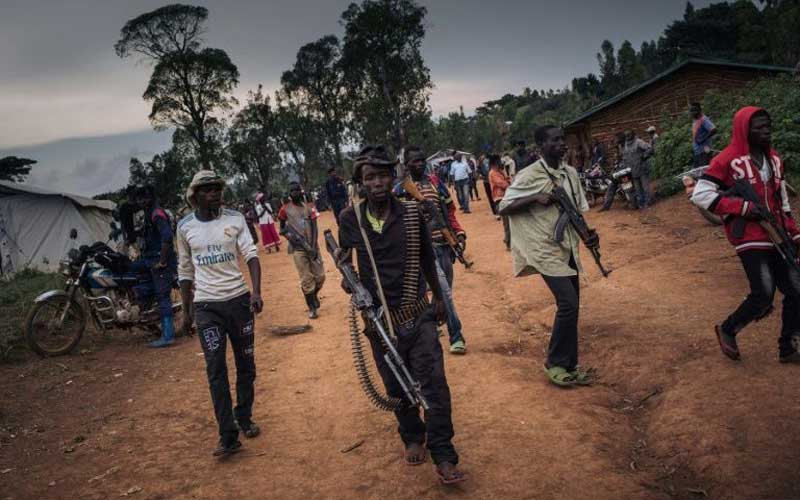×
The Standard e-Paper
Kenya’s Boldest Voice

Lendu militiamen at a meeting with former warlords in the village of Wadda. [AFP]
"I call on you to prefer peace. I speak as someone who has spent 15 years in prison," says Floribert Ndjabu, a former warlord who has come to urge the men of a notorious armed group in northeast DR Congo to give up violence.